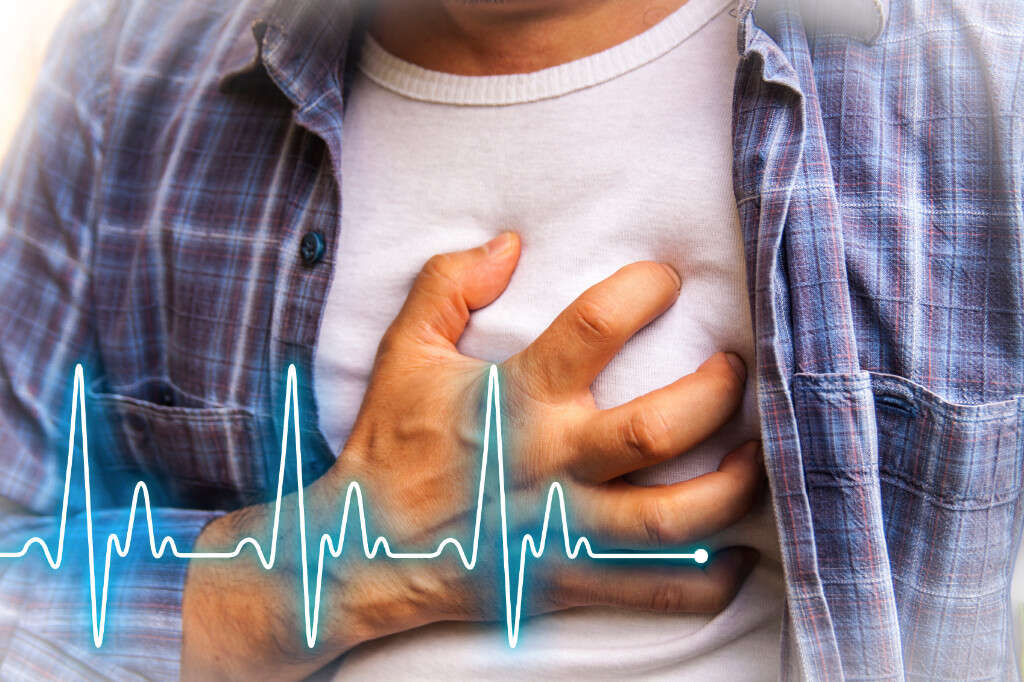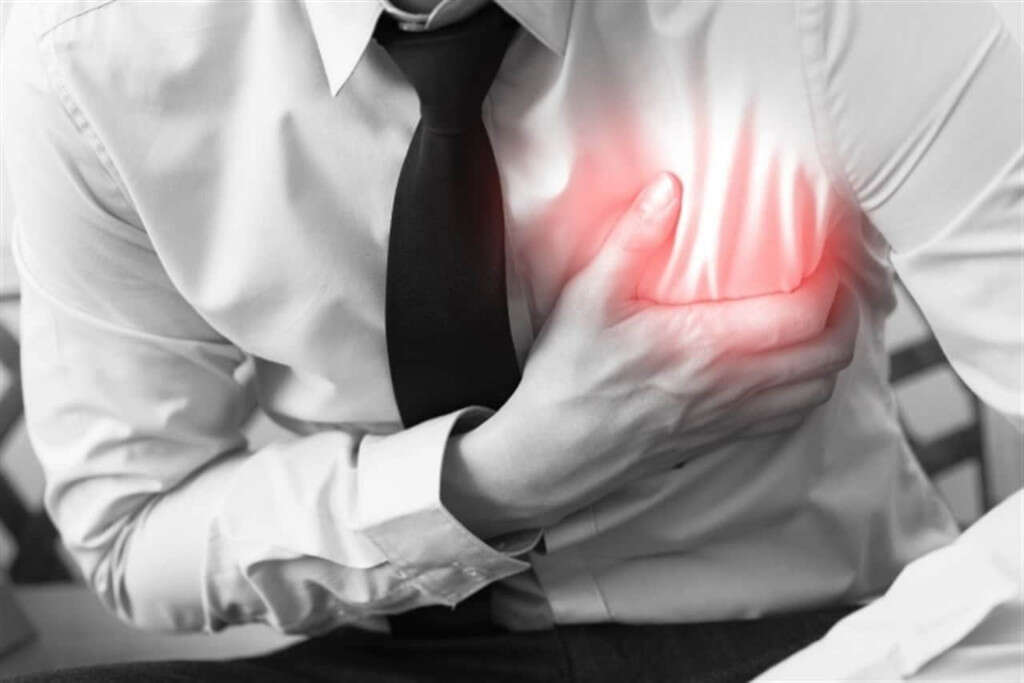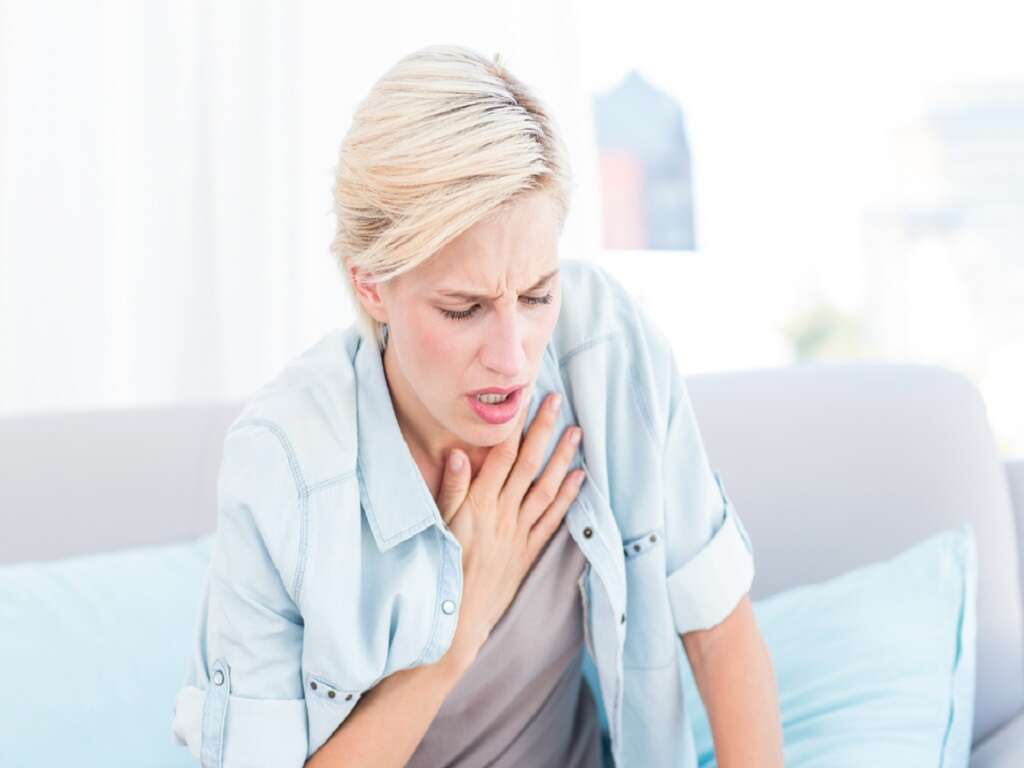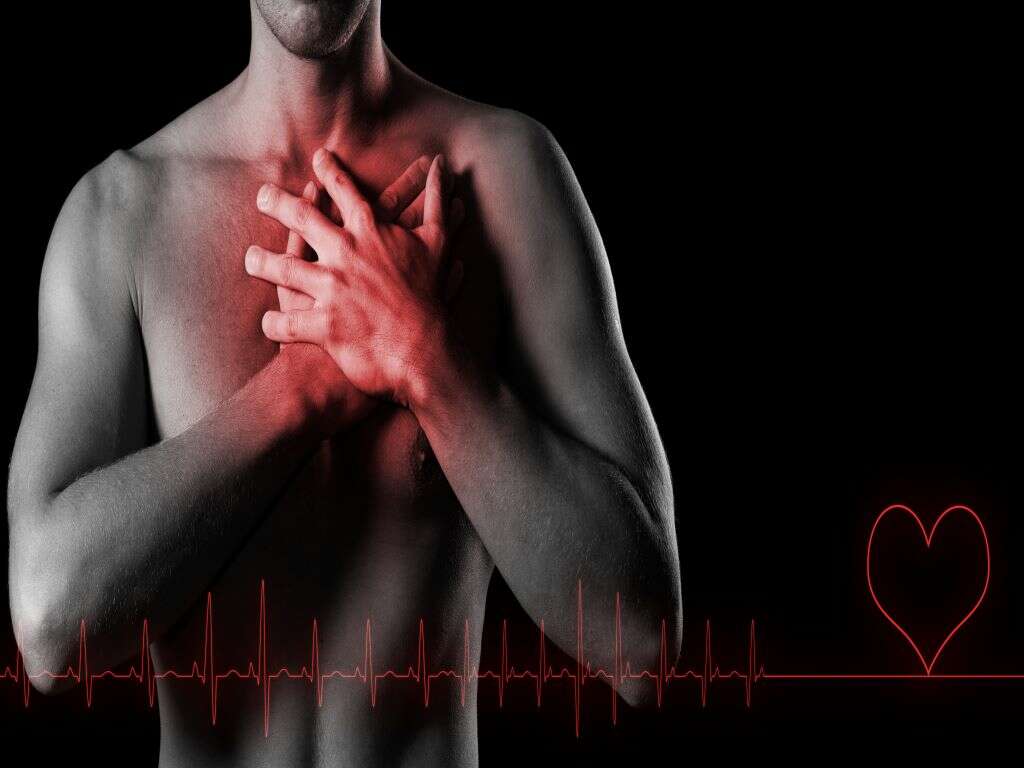10 Causes of Heart Pain
Heart pain or chest pain refers to pain that occurs in the region of the chest. It can be a symptom of many serious conditions and should always be considered as a medical emergency. Cardiac chest pain is known as angina pectoris. However, pain in the chest can also be caused by noncardiac-related causes such as lung issues, musculoskeletal, or gastrointestinal issues.
Chest pain can have different characteristics of pain and associated symptoms depending on the age, gender, and existing comorbidities of the affected individual.
Chest pain is a common issue with an estimated 6 to 8 million individuals presenting in the emergency department annually in the United States. About 50 to 70 percent of those with chest pain will be hospitalized or placed under observation.
Cause #1: Coronary Artery Disease
Coronary artery disease (CAD) or ischemic heart disease (IHD) occurs when there is reduced blood flow to the heart muscle due to blockage in the blood vessels. The blockage is most commonly due to the build-up of plaque. CAD is the commonest cardiovascular disease and can be divided into myocardial infarction, stable angina, and unstable angina. Patients with CAD often experience chest pain that radiates to the arm, back, neck, jaw, and shoulder. It can also be mistaken as heartburn as the sensation is often similar.
Symptoms usually appear when there is stress or exertion and improves with rest. Other associated symptoms include breathlessness and abnormal heartbeat. The risk of CAD is higher among those with hypertension, diabetics, smokers, obese individuals, and those with a sedentary lifestyle.
Cause #2: Pericarditis
Pericarditis occurs when there is inflammation of the pericardium, which is the fibrous sac that surrounds the heart. Patients with pericarditis often experience chest pain, which may radiate to the back, neck, or shoulders. The pain is often worse when breathing deeply or lying down. Other associated symptoms include palpitations, weakness, fever, and shortness of breath.
An infection is one of the most common causes of acute pericarditis. Other potential causes include sequelae of a heart attack, autoimmune disorders, cancer, and trauma to the chest. Diagnosis is based on symptoms, electrocardiogram changes, and the presence of fluid surrounding the heart.

Cause #3: Myocarditis
Myocarditis or inflammatory cardiomyopathy occurs when there is inflammation of the heart muscles resulting in shortness of breath, irregular heartbeat, chest pain, and decreased ability to exercise. It is most commonly due to viral infections. It can also be caused by bacterial infections, toxins, certain medications, and autoimmune disorders.
Diagnosis can be made using an electrocardiogram, echocardiogram, magnetic resonance imaging (MRI) of the heart, troponin levels, and possibly a heart biopsy.
Cause #4: Anxiety
Patients suffering from an anxiety disorder can experience chest pain that is very similar to a heart attack. If the patient is not diagnosed, it can be a very scary episode as the anxiety can also cause palpitations, sweating, and dizziness, all symptoms that are also associated with a heart attack.
It is important to seek medical attention as soon as possible in order to rule out other life-threatening conditions.

Cause #5: Esophageal Spasm
Esophageal spasms are involuntary muscle contractions that occur in the esophagus and are not related to food transit.
The cause of this condition is not known but as the esophagus starts to contract violently, the pain can resemble a heart attack due to its location and intensity.
Cause #6: Hypertrophic Cardiomyopathy
Hypertrophic cardiomyopathy is a condition where a part of the heart has thickened without an apparent cause. This causes the heart to be less efficient and less able to pump out blood resulting in leg swelling, tiredness, fatigue, breathlessness, chest pain, and fainting.
It can cause complications such as sudden cardiac death, heart failure, and an irregular heartbeat.

Cause #7: Costochondritis
The pain from costochondritis is often mistaken for heart or chest pain. It is a condition where pain originates from the chest wall due to inflammation of the costal cartilage. This is located at the connection of each rib to the sternum. It is usually acute and often temporary. While it can be a recurring condition, it usually resolves on its own.
Many individuals with costochondritis often mistake it for chest pain associated with a heart attack. However, it is important to note that all chest pain should be considered a medical emergency until life-threatening causes are ruled out.
Cause #8: Pleuritis
Pleuritis or pleurisy is a condition where there is inflammation of the pleura (membranes surrounding the lungs and lining the chest cavity). Patients with pleuritis may experience chest pain that is sharp when they breathe, breathlessness, coughing, weight loss, and fever. The pain may also be a constant dull ache.
Pleuritis can occur due to infection, pulmonary embolism, pneumonia, autoimmune disorders, chest trauma, and cancer. Pain is felt as if there is rubbing of the two layers of the pleura instead of smooth gliding.

Cause #9: Pneumonia
Pneumonia is an inflammatory disorder affecting the alveoli of the lungs. Patients with pneumonia may experience chest pain, productive cough, dry cough, difficulty breathing, and fever. Pneumonia can be caused by infections due to various bacteria, viruses, other microorganisms, autoimmune diseases, and certain medications.
Individuals at risk of pneumonia include those with chronic obstructive pulmonary disease, asthma, cystic fibrosis, heart failure, diabetes, a weakened immune system, and those who have had a stroke. Smokers are also at risk. The diagnosis can be made based on the patient’s history, physical examination, blood tests, chest x-ray, and sputum culture. Treatment depends on the underlying cause of pneumonia.
Cause #10: Gastroesophageal Reflux Disease
Gastroesophageal reflux disease (GERD) is a chronic condition where the contents of the stomach backflows into the esophagus resulting in bad breath, heartburn, chest pain, breathing issues, vomiting, and wearing away of the enamel of the teeth. It can also lead to complications such as Barrett’s esophagus, esophageal stricture, and esophagitis.
Those at risk are individuals with a hiatal hernia, pregnant women, obese individuals, smokers, and those who use medications such as antidepressants, antihistamines, and calcium channel blockers. Treatment of GERD includes lifestyle changes, medication, and surgery.











